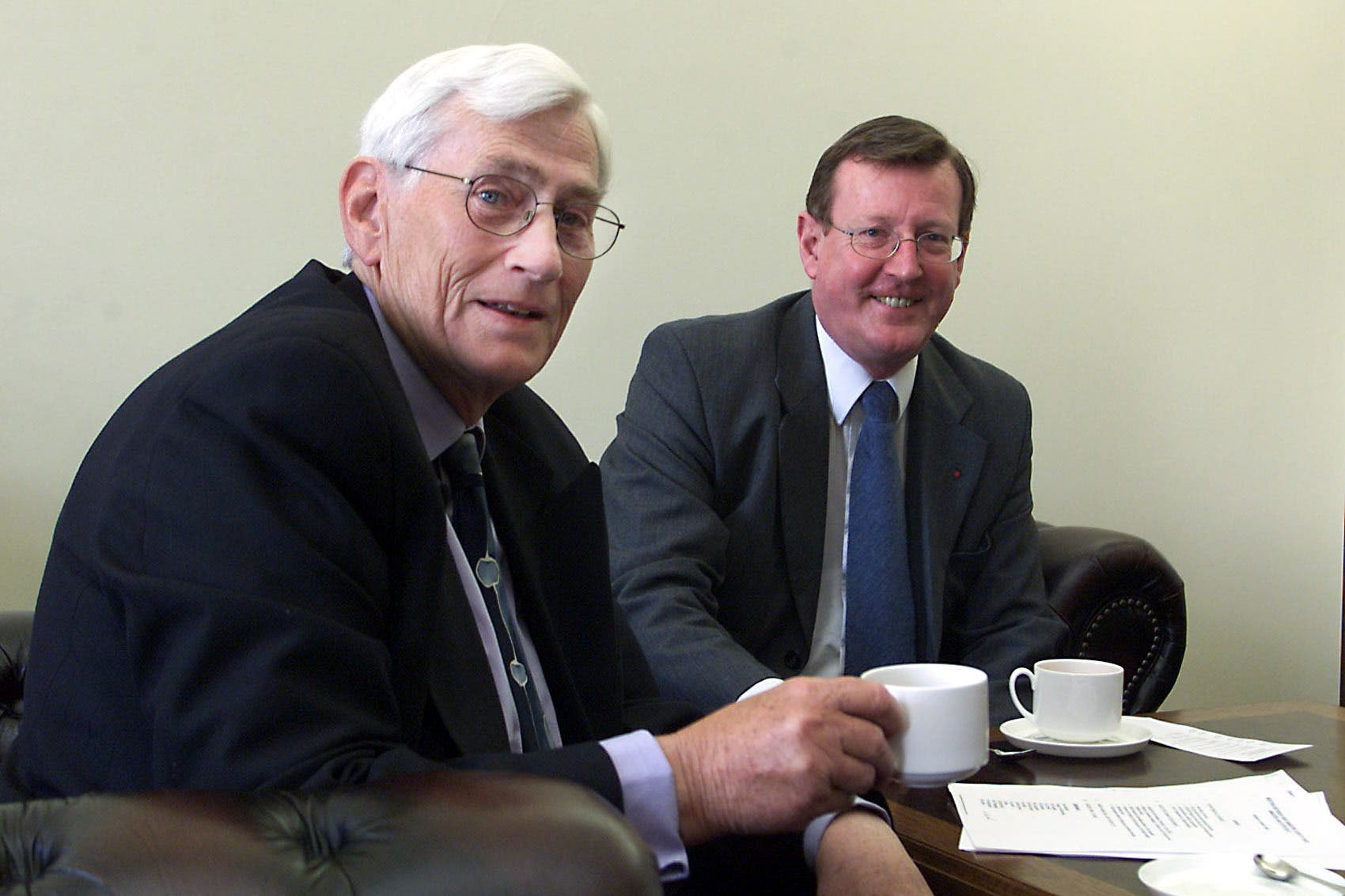Memo reveals lack of statutory cover for MLA salaries after first Assembly election
Declassified papers show the Government moved to introduce legislation in 1999.

Political parties and politicians were paid salaries and allowances without statutory cover after the first Northern Ireland Assembly election in case the institutions came to a “premature end”, state papers have revealed.
In 1999 the government hurried to make an order giving cover to funding after saying it seemed that “devolution might take off”, while also conceding ministers might be criticised for being “somewhat tardy”.
In 1998 the government introduced temporary funding for parties which had had MLAs elected to the newly formed Stormont Assembly.
The scheme provided £10,000 for each party plus an additional £1,000 per elected member for six months.
The reasoning for this seems to be whether it was worth giving such cover to something which might come to a premature end
After the temporary scheme expired in January 1999 the payments continued on a month-to-month basis.
However, later that year, as momentum grew for the full devolution of powers to the Stormont Executive, the government realised it had to make a permanent arrangement.
Civil servant Jonathan Margetts, from the Constitutional and Political Division of the Northern Ireland Office (NIO), sent an internal memo giving statutory cover to salaries and allowances.
His paper said the step should be taken “before July 16 to save any embarrassment after devolution”.
He said: “Ever since they were elected last year, Assembly members have been paid salaries and allowances. So far these have been paid without full statutory cover.
“The reasoning for this seems to be whether it was worth giving such cover to something which might come to a premature end.
“However, we are now approaching the point where devolution might take off and we should, as the Northern Ireland (Elections) Act provides, give ourselves retrospective cover and cover payments up to devolution.
“There is some possibility that we might suffer some criticism from the Joint Committee on Statutory Instruments for being somewhat tardy in making this order but I think we can robustly defend our position, relying upon the fluid nature of politics in Northern Ireland.”
When the New Northern Ireland Assembly (Salaries and Allowances) Order 1999 order was passed, it provided a salary of £60,164 to the first minister, £54,876 to the deputy first minister, £45,069 to the presiding officer and £29,292 for MLAs.
It also included provision for travel mileage, travel costs, subsistence and office allowances.
In October 1999, Tom Watson from the NIO sent a memo about upcoming trip to London for Northern Ireland parties, entitled Money, Money, Money.
He said: “When making the political parties aware of the arrangements for the Mitchell Review occurring later this week in London, their focus, predictably, was not on timing, venue or format but on who was covering the travelling expenses!”
Bookmark popover
Removed from bookmarks